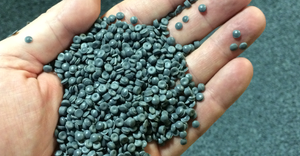Keeping Your Data Safe
May 14, 2020

Did you know the world’s fastest-growing solid-waste stream is electronic waste? Astonishingly, less than a quarter of all U.S. electronic waste is recycled (United Nations). We’re hungry for the latest technology, but as new devices are created electronic waste continues to pile up.
In the past, the U.S. shipped all of its electronic waste to Southeast Asia. However, last year Thailand banned the import of foreign electronic waste and in 2018 China closed its borders to electronic waste, too. As electronic waste continues to grow so do new U.S.-based laws that manage the disposal of electronic material. “The environment laws that cover electronic waste are quite big,” said John S. Shegerian, co-founder, Executive Chairman, ERI. The laws were developed to ensure electronics are not buried in landfills. As proven over the years, if electronic waste is recycled responsibly, all of the items contained in the electronics can be moved to smelters around the world and be used for beneficial reuse.
But electronic waste is no longer just an environmental hazard. The recycling of electronics is facing a huge obstacle in the form of cybersecurity and digital privacy. Whether it’s your computer, your smartphone, your car or even your refrigerator, devices retain a lot of personal data and all of that information may be vulnerable to cybercriminals.
Individuals as well as multi-national corporations are reluctant to recycle their electronics for fear that their private or personal data will be compromised. And their fears are not without merit. This is an issue that has been building for some time as more and more devices flood the market.
When you hear about the breeches at companies like Facebook, Equifax and Marriott to name a few – you understand the concern. Shegerian said, “The brands are large, the stakes are high.” This is an issue that will not go away anytime soon. Data suggests that cybercrime cost businesses over $2 trillion total in 2019 and the average cost of a data breach in 2020 will exceed $150 million. (Juniper Research)
Protection of data is key. From HIPAA & HITECH (Healthcare and Business Associates) to COPPA (sites that collect data on children) to GDPR (Companies that handle personal information of an individual in the EU), many data security laws have been enacted to keep data safe. In addition, four states (Nevada, California, New York and Maine) have passed new legislation and at least 22 states have proposed legislation or have enacted study bills. In addition, at least eight federal laws are currently proposed.
Another trend with regard to electronic waste is around the move from 4G to 5G devices. We are going through a massive turnover of electronics. With new technology comes new obstacles. Internet-connected devices using 5G mobile networks offer prime targets for criminals. Experts don’t believe it’s the 5G technology itself, but the communication between devices connected to the internet. These Internet of Things (IoT) devices are everywhere and will continue to grow from 14.2 billion to 25 billion by 2021. (Gartner)
With the onset of the coronavirus crisis, the problem of managing data on devices has become even more prevalent. As millions find themselves working from home, private data is being placed onto electronics at astronomical rates and home-based or portable equipment is now being used to store sensitive and private data. And criminals are taking advantage of us being distracted by COVID-19. Not surprisingly, the FBI has seen a spike in cybercrime reports since the onset of the pandemic. According to the Official Cybercrime Report published by Cybersecurity Ventures, cybercrime will cost the world $6 trillion annually by 2021, up from $3 trillion in 2015.
Shegerian said, “The issue of cybersecurity is real and it’s growing. And electronic waste plays a large role in that now.”
Interested in learning more about recycling electronics?
Click here to see the webinar.
About the Author
You May Also Like




